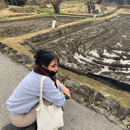How do you categorize a “bad” movie? Perhaps it’s in the plot. Is it unprogressive? Corny? Does it have a lot of plot holes? Or maybe it’s the imagery. Does it have dull lighting and colors? Is the cinematography so bad that you have to turn your eyes away from the screen? Of course, what constitutes a “bad” movie is different for everyone, but would you consider films that make you sleepy, bad?
These past few years, I’ve been trying to broaden the types of movies I watch. I explored more European and Asian films, as well as films from the 1900s. When you expand your radar, you will become exposed to different kinds of movies, with varying themes, pacing, and style. You’ll find some hidden gems, and some “why wasn’t I introduced to this sooner” films. But you’ll also be exposed to stuff you won’t really like. Either way, it’s always rewarding to keep an open mind. After watching countless numbers of foreign and local, old and new films, I came up with a new genre. “Sleepy” movies, which means exactly what it sounds like, are movies that make you sleepy. While many—including me in the past—may associate movies that make you heavy-lidded as boring, I have come to see it in a new light.
One of my first encounters with these “sleepy” movies was when I first saw Andrei Tarkovsky’s Solaris (1972). I was amazed by the images of foggy landscapes and the utilization of space and silence. Despite being a science-fiction drama, it is relatively quiet and slow paced, compared to the loud, action packed sci-fi blockbusters such as Star Wars or Back to the Future. A more recent one I saw was Mani Kaul’s debut feature Uski Roti (1969), a film that highlights gender roles and violence. Quiet moments, scenes without dialogues, and the actors’ monotone delivery are some characteristics of Kaul’s style. The story and shots go at a languid pace, but it demands your attention when it needs to.
But possibly one of my favorite “sleepy” movies is The Small Town (1997), a film by Turkish director Nuri Bilge Ceylan. The Small Town, or Kasaba in Turkish, focuses on family dynamics. The first half of the film teases you with nicely composed, beautiful images, with little to no dialogue. We follow two children as they attend school and commute back home, but the attention shifts to the adults in the second half. As the family gets together at night, they gather around the campfire for warmth, and argue about politics and family drama. I began feeling my eyes droop during this section. As opposed to the first half of the film, the second part focuses on dialogue and interaction. This scene reminds me of my own family gatherings, where after we finish our food, we cram half of our large family into one room to gossip and lecture each other about life choices. I always find entertainment in family arguments and banter, but most of the time I end up walking out of the room to nap in an empty room or the sofa. At this point, I came to realize how movies make me sleepy. These films create atmospheres of comfort. It’s calming, peaceful, and by no means “boring”.
I am sure that everyone has their own category of “sleepy” films, though not all may be evoked by the serenity and quietness of the film, and not everyone may see “sleepiness” as a positive quality of a piece of work. But for me, these movies drive me to seek comfort. Films are not always meant to excite you, make you cry, or force you to think, sometimes it gives you the things you need to surrender yourself to sleep.


